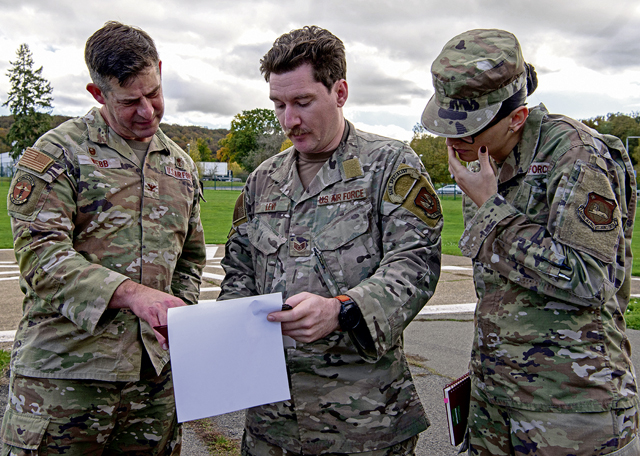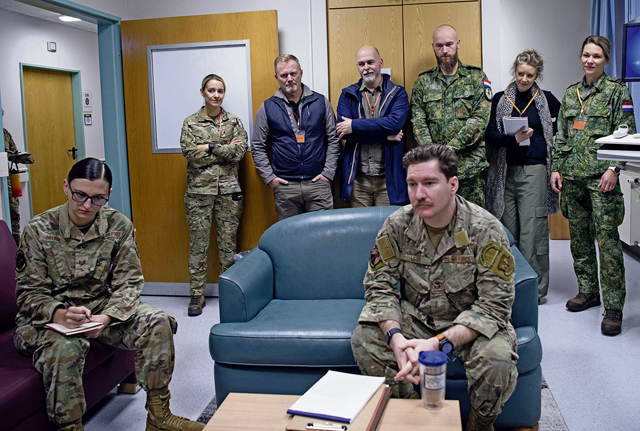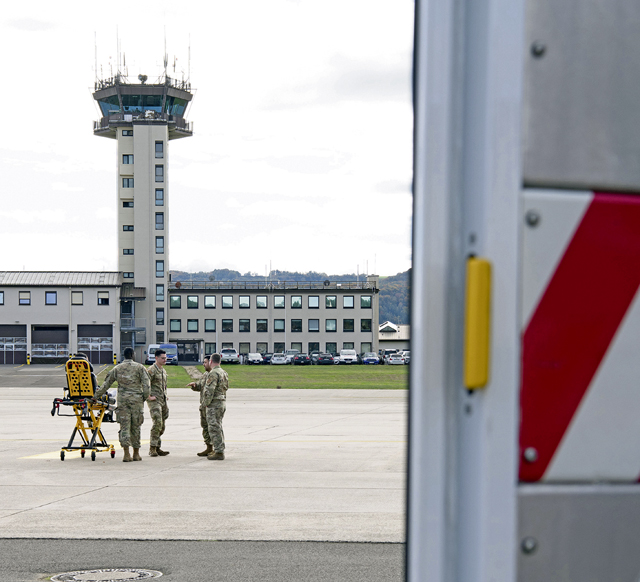
U.S. European Command recently conducted a Phase II Reintegration exercise designed to prepare DoD personnel and support teams for the return of individuals from captivity.
The exercise, held at Landstuhl Regional Medical Center on Oct. 22–24, focused on the second phase of reintegration, which addresses the medical, psychological and emotional needs of returnees after their initial recovery.
Exercise participants were provided with instruction, hands-on scenarios and simulations on returnee reception, medical readiness, Emergency Operations Center preparation and the principles of the Code of Conduct.
The exercise enabled military personnel to grasp their role within the intricate reintegration process, which involves various components and support personnel.

“Working with this team of various services, specialties, partner agencies and nations, has been a great experience,” said U.S. Air Force Col. Jason Webb, U.S. European Command Phase II Reintegration exercise team chief. “I believe this team has positively influenced the reintegration process, and I know that all members of the team gained a better understanding of the importance and execution of the process through our team interactions and the input of our partner nations and agencies during this exercise.”
These exercises allow the reintegration team, which consists of medical, Survival, Evasion, Resistance, and Escape psychologists, and intelligence and SERE debriefers, to rehearse protocols for gathering information, conducting physical and psychological assessments, gaining lessons learned and establishing procedures to expedite a servicemember’s return to duty.
“Reintegration of an isolated individual is an extremely complex, delicate and important task,” Webb said. “The broad range of experts required to achieve the common goal of gently returning an isolated individual to duty demands a great deal of teamwork.”

Participants and observers included representatives from Belgium, the Netherlands, Norway, Sweden, the U.S. Air Force, Army, Navy, and FBI. This collaboration highlighted international and interagency commitment to providing comprehensive support for returnees.
“Learning from the reintegration process here will strengthen our international cooperation in the event of a real-world personnel recovery scenario,” said Royal Netherlands Air Force Maj. Lynn Ten Velde, Centre for Man in Aviation senior aviation psychologist. “Additionally, it helps us build a network of subject-matter experts across allied nations, enhancing our ability to collaborate effectively.”
The importance of such exercises cannot be overstated. Phase II Reintegration ensures that service members are provided with the necessary support to enable them to return to duty, family and society as quickly as possible.
“The reintegration mission is a unique one,” said U.S. Air Force Tech. Sgt. Adam Doumit, 603rd Air Operations Center EUCOM Phase II Reintegration office of primary responsibility member. “It allows us to get a returnee back into a normal lifestyle while also gaining vital information about their experience to change the way we approach training, to better prepare our warfighters that are at risk of being isolated.”
By conducting realistic reintegration exercises, EUCOM strengthens its ability to respond to real-world scenarios, ensuring that returnees are fully supported as they return to duty.


